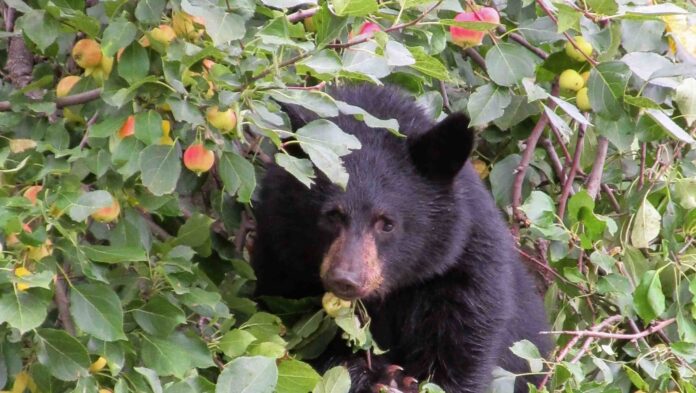The City of Nelson is working with WildSafe BC to determine a new method of dealing with “problem” bears.
This would see the city shift from the current reactive management approach to a more proactive strategy.
WildSafe coordinator, Lisa Thomson, says part of deterring human/wildlife conflict is removing why they are here in the first place.
“First thing we need to do is understand what human habituation is, in terms of wildlife,” said Thomson. “This means wildlife are less fearful of humans and urban areas, and this ends up being a learned response or behavior.”
Thomson said it is vital to understand that wildlife are using up their natural food resources, which are running out as urban areas develop.
As a result, the animals must find their food elsewhere.
“The other important term is food conditioning,” explained Thomas. “This is when wildlife become reliant on human generated food sources such as garbage, compost and fruit trees. This is often a learned response, which is taught to the wildlife offspring.”
Part of their initiative to decrease the amount of bears destroyed in 2023 is to ask councils to consider introducing weekly curbside garbage during high conflict months.
She said Nelson has seed an increase in blackbears, especially this year with July, August, and October being the highest rated months; however, in 2016 the bear activity was highest during August, September, and October.
Thomson said statistics show October is the most active month for bears because they are getting ready for hibernation and it happens to coincide with the fall fruit harvest.
“October is a month of high conflict,” said Thomas. “Mainly because mating season is May and that means many younger cubs will venture down for food. Especially since the majority of wildlife is getting ready for hibernation.”
She said the high concentration of blackbears in the city is a result of accessibility to food and environmental changes, which is why it is important to be more diligent about waste and deterring food conditioning.
“This year has been an unprecedented season,” said Thomas. “We saw the highest number of blackbears lethally destroyed within the city limits, and this was due to food conditioning which in turn established human habituation.”
WildSafe BC generated awareness throughout the region with door-to-door campaigns, wildlife safety and attractant mitigation presentations, as well as bringing awareness to several youth groups throughout the region.





